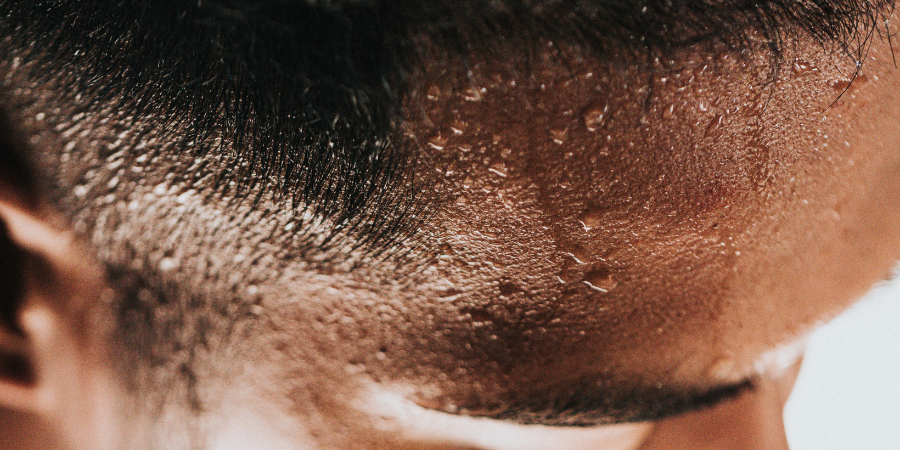Last Updated:
July 28th, 2025
The Detox Process | How Detoxing Works
Addiction’s physical hold, particularly with substances like drugs and alcohol, can turn quitting into an overwhelming battle. Quitting “cold turkey” on your own without support is not only difficult but also very risky. Professional assistance is crucial, with a medically guided detox offering expert support and guidance. There are many detox centres across the UK, and both NHS and private services are available. Understanding what addiction detox involves and how to detox your body safely can give you the courage and confidence needed to take this first critical recovery step.

What is detox?
The purpose of detox (short for detoxification) is to allow your body to remove any traces of alcohol or drugs in your system. Stopping suddenly without professional support often leads to relapse and, in some cases, can even put your life in danger. A medically planned and supported detox is designed to prevent relapse and any health risks.
You will usually be admitted as an inpatient into an NHS or private detox facility, where you will stay under observation until detox is complete. Detox can be a very difficult process, and the experience can be quite different from person to person. This is why you will usually receive a medical assessment first so that an individual detox plan can be made for you to follow.
What is withdrawal?
Our bodies are very adaptable, and while this has many benefits, it can also cause problems for people with substance use disorders. With repeated and regular drinking or drug use, you receive artificial stimulation, which the brain starts believing is “normal”. For example, alcohol and many drugs cause a dopamine spike, an unnatural surge of the “feel good” chemical that is responsible for pleasure and happiness.
Over time, the brain adjusts to these high dopamine levels, expecting them to stay the same from now on. When the substance is no longer supplied, however, the levels drop, the brain experiences a deficit, and you experience a range of physical and psychological withdrawal symptoms. These continue until all of the drugs and alcohol have left your body, and your brain starts working again like it’s supposed to do.
Struggling with an addiction? If you are ready to seek help, reach out to us today, and a member of our compassionate team will help you find the best option for starting your recovery journey.
Withdrawal symptoms from detox
If you have ever tried to stop taking drugs or alcohol on your own, you may have already experienced withdrawal symptoms. The exact symptoms you will face in detox depend on what type of substance you are addicted to, how healthy you are, how much you have been taking, the duration of your dependency and the support you get.
Physically, you may endure headaches, nausea, extreme shaking, sleep issues and diarrhoea, while severe cases can cause seizures, heart palpitations and dangerous blood pressure changes.
Mentally and emotionally, you can often expect heightened anxiety, irritability and feelings of depression alongside cognitive hurdles like confusion, difficulty focusing and even memory loss.
While these withdrawal symptoms can be scary, a professional detox medical team knows how to minimise the distress and danger they cause.
Common forms of addiction detox
It is possible to detox from any substance you put in your body, but in terms of addiction, the most common programmes include:
Alcohol detox
Alcohol detox can be very dangerous, particularly for people with a long-lasting addiction or poor health. This group may experience Delirium Tremens, the most severe form of alcohol withdrawal, which can be life-threatening.
Drug detox
This includes detox for heroin, cocaine, meth, ecstasy and a wide range of other illegal drugs. Each produces its own list of unpleasant and dangerous withdrawal symptoms, which requires professional management.
Prescription drug detox
This is a detox for prescription medicines like sleeping pills and opioids. Some people may think that prescription drugs are safer and less addictive but withdrawal from these substances can be intense, long-lasting and very dangerous.
Legal high detox
Spice, benzo-fury, mephedrone and various other “legal highs” all require carefully managed detoxes to break physical dependence. These drugs are often a cocktail of different substances, and this can make withdrawal unpredictable and particularly dangerous.
Detox and withdrawal timeline
As with the symptoms of withdrawal, timelines can also vary a lot from person to person. For example, a healthy individual who has only been dependent on cannabis for a few months may have a shorter, easier withdrawal than someone with a long-term heroin addiction who is also in poor health. However, here are some typical timelines for some of the most commonly undertaken detoxes:
The benefits of detox
It can be tempting to attempt detox at home because it is less disruptive, free of charge and because checking into a recovery clinic can be scary. However, there are many benefits of professionally monitored detox vs home detox which need to be taken into account. These include:
Medical assessment and detox planning
The best way to ensure safety and success in detox is to plan accordingly. Professional detox centres will assess you when you arrive so any potential issues can be identified before they arise. This will allow your team to create a personal detox plan for you to prevent any surprises during withdrawal.
On-hand medical support
Having a professional medical team on hand means that if any severe withdrawal symptoms do emerge, they can be promptly and effectively managed. They will keep you hydrated and emotionally stable and may also give you medicine to replace drugs or reduce symptom intensity. This level of care will keep you comfortable but, more importantly, will also keep you safe.
Minimised relapse risk
Professional detox centres are designed to minimise the risk of relapse by providing a safe and controlled environment where substances are strictly prohibited. Many people who detox at home alone give in to cravings and withdrawal symptoms, even though they genuinely want to quit. By removing the immediate possibility of relapse and supporting you through the challenges of withdrawal, professional detox programmes help you stay strong and on the path to recovery.
Access to comprehensive support
Professional recovery centres usually provide detox as the first stage of a comprehensive treatment plan. Once you are past withdrawal, you will then go straight on to rehab, where the other non-physical aspects of addiction are treated. This seamless transition is important as it allows you to continue your recovery journey without interruptions, maintaining the momentum and focusing on healing.

Contact us today for detox advice
Britain has some of the best addiction detox services in the world, but with so many options, it can be hard to know where to start. Addiction Helper has vast experience in detox and can help match you with the right programme. Contact us today to discuss your needs and allow our expert team to help you get started on the road to recovery.
Our compassionate team are ready and available to take your call, and guide you towards lasting the lasting addiction recovery you deserve.
Frequently Asked Questions
(Click here to see works cited)
- Banbury Lodge. “Addiction Detox | Withdrawal & Detox Timelines.” Banbury Lodge, https://www.banburylodge.com/detox/. Accessed 17 February 2025.
- NCBI. “Alcohol Withdrawal – StatPearls.” NCBI, https://www.ncbi.nlm.nih.gov/books/NBK441882/. Accessed 17 February 2025.
- UK-Rehab. “Drug Withdrawal & Detox | UK Rehab.” UK-Rehab, https://www.uk-rehab.com/treatment-rehab/withdrawal-detox/. Accessed 17 February 2025.
- Pétursson, H. “The benzodiazepine withdrawal syndrome.” Addiction (Abingdon, England) vol. 89,11 (1994): 1455-9. doi:10.1111/j.1360-0443.1994.tb03743.x
UK-Rehab. “Stimulants Addiction Treatment & Rehab Explained.” UK-Rehab, https://www.uk-rehab.com/treatment-rehab/stimulant/. Accessed 17 February 2025.

